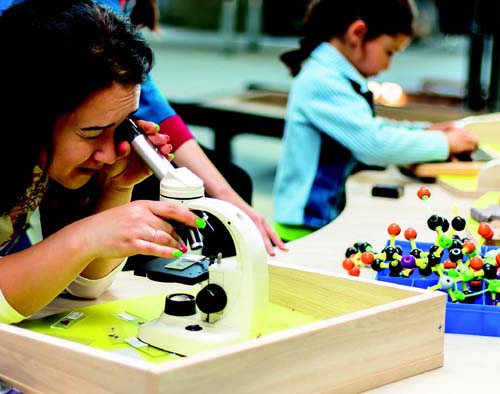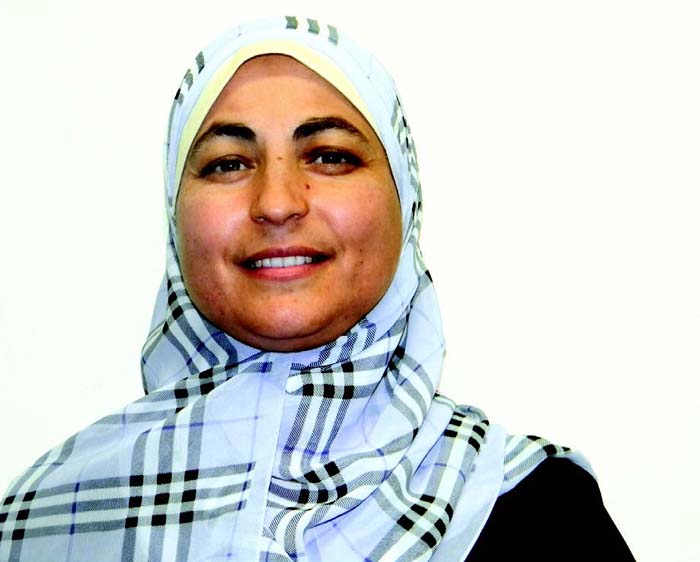Careers in science, technology, engineering and mathematics (STEM) have traditionally been male-dominated. However, times are changing. Women are pushing boundaries and breaking long-held stereotypes to become key players in some of the most exciting, fastest growing, and often highest paid employment sectors in the world. Those working within STEM sectors play a key role in sustaining economic growth, leading innovation and even tackling many of the challenges we face to our environment. Having a balance of genders in the workplace creates pools of diverse thinkers with a myriad of skills, which are needed to drive creativity and innovation that will help to sustain, grow and protect our world.
Clearly, there are barriers to women in STEM. Gender stereotypes and bias, educational differences, cultural beliefs, inflexible working conditions and a lack of role models all present obstacles to women pursuing careers in STEM. Nevertheless, leaps forward are being made as governments, educators, employers, and girls and women themselves recognise the importance of women and their inherent skills in STEM.

Qatar is no exception. Part of the 2030 Vision emphasises the empowerment of women’s roles in society, particularly in political and economic spheres. Schools, universities and many companies and professional bodies in Qatar promote STEM specific programmes and activities, or host initiatives and clubs to inspire, support and empower women in STEM.
It’s a positive initiative that has been set in motion for women in this country. Professor Karma Samir Sherif has been the Professor of Management Information Systems (MIS) at Qatar University since 2015. As well as teaching graduate and undergraduate MIS courses, she is involved in information system research and has published papers in a number of top-tier MIS journals.

We spoke to Professor Karma Samir Sherif about her experiences, and how she sees the future for girls and women aspiring to work in similar fields.
What would you say are the most rewarding or surprising aspects of a career in STEM are?
Arguably one of the most rewarding aspects that stem from a career as a professor of technology is that I am able to teach students how to innovatively utilise technology as a means of overcoming social, political and economical constraints and to come up with novel developments to solve problems.
As an educator in a STEM subject, have you witnessed more women pursuing an education in your field in recent years?
Surprisingly in Qatar, the number of female students studying in MIS is almost double that of their male counterparts, demonstrating how there is definitely a rise of females pursuing careers in STEM fields.
Beyond just numbers, the female students I have taught excel in the subject, indicating capabilities that would assuredly help them succeed in STEM careers.
Have you witnessed positive changes in the support of women’s education in STEM subjects since your journey began?
In the last decade or so, there has been an upward movement encouraging and facilitating the joining of more women in STEM fields, broadening the working force from what had previously been dominated by males to a more inclusive one with both women and men. Although their numbers are rising, I hope that in the coming years, women assume more leadership roles that accentuate their talents and help them rise further in the field.
What additional changes do you believe need to be made within the educational environment to encourage more women to study STEM subjects?
It is crucial that education incorporates more interactions with businesses for the enforcement of real-world experiences so that women are aware of what entails working in a STEM career. By doing this, it would further push more women to pursue leadership roles, thereby elevating them in the organisational ladder.
Do you believe that more can be done to encourage women who have achieved STEM qualifications to continue into employment within their chosen field?
To encourage more women to continue employment within their respective STEM fields after education, organisations should support the social role of women, especially during their early motherhood years, and innovatively use technology to allow women to continue their contribution remotely while at home.
As a woman with a successful career in STEM, what advice would you give to girls and women who would like to pursue a career in this field?
The best advice that can be given to young girls and women who would like to pursue a career in STEM is to believe wholeheartedly in their abilities and not to give up a career in their desired fields simply for the sake of conforming to societal standards. Go beyond your comfort zone and engage in opportunities such as internships and competitions and set your goals and be persistent in achieving them.
Who supported you on your journey into a STEM career, and who, if anyone, was your role model?
My father and husband were my two biggest advocates that supported me throughout my journey into a STEM career. They both always pushed me to go above and beyond the initial goals that I set for myself and were there to encourage me during challenges that at the time seemed insurmountable. My mother manifested into my role model during my formative years as I witnessed her always following her dreams, and she encouraged me and my siblings to do better than just average.
Would you recommend any initiatives that promote and support women in STEM?
While there has been much headway made in recent years to promote and support women in STEM, there is still much left to be desired for female participation. Incorporating women in business endeavours, inspiring curiosity and breaking apart stereotypes are a few examples of initiatives that can help encourage female engagement in STEM-oriented careers. Furthermore, having a strong support system that accepts both women’s social roles as well as career goals is vital for a female in the field.

In our ever-changing world, the role of women is also transforming and diversifying. Women are steadily moving towards their goals of equality and exploring their skills in new positions. Barriers still exist, but with champions and role models for women and girls to revere, progressive policies in government, education and employment, and, most importantly more women striding towards their chosen goals, those will eventually fall.
STEM is no longer just for men, for nerds or for ‘white-coat wearing’ stereotypes. Science, technology, engineering and mathematics are subjects that affect all of us in our everyday lives. It is for all of us, regardless of gender, race or culture, to explore and take advantage of the benefits they bring.



